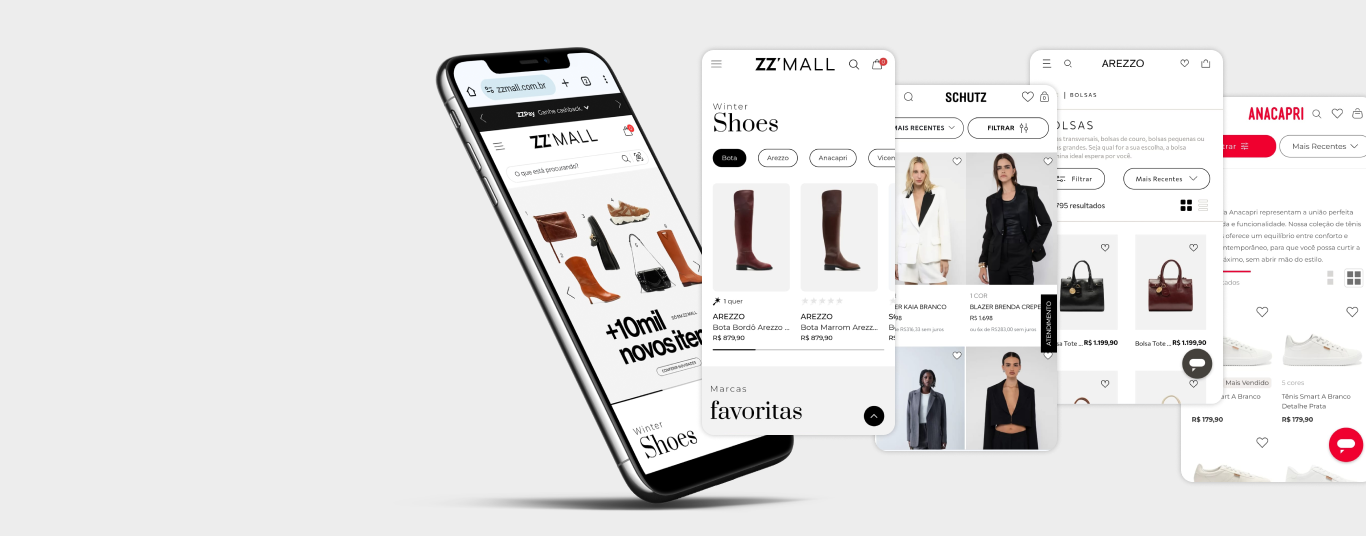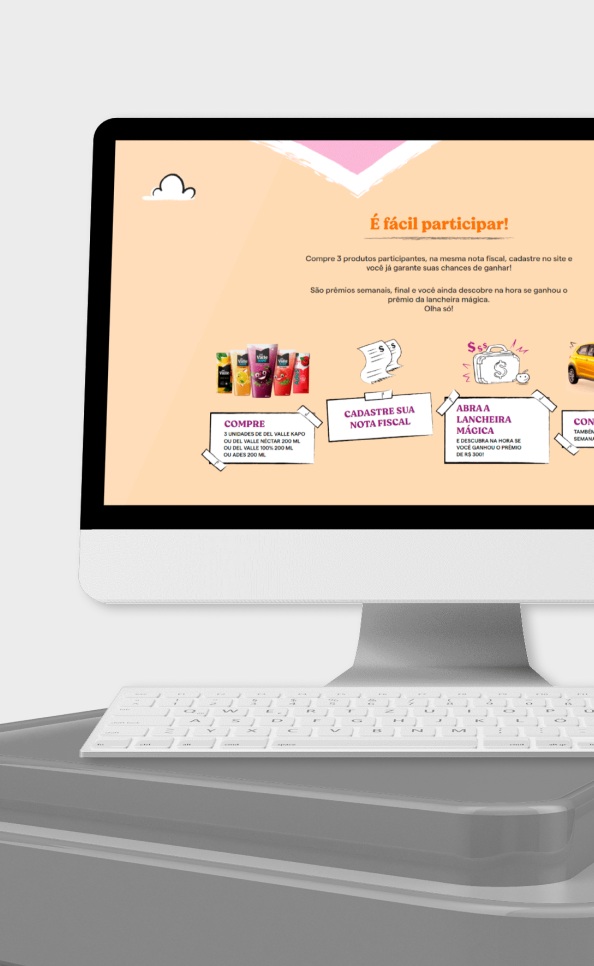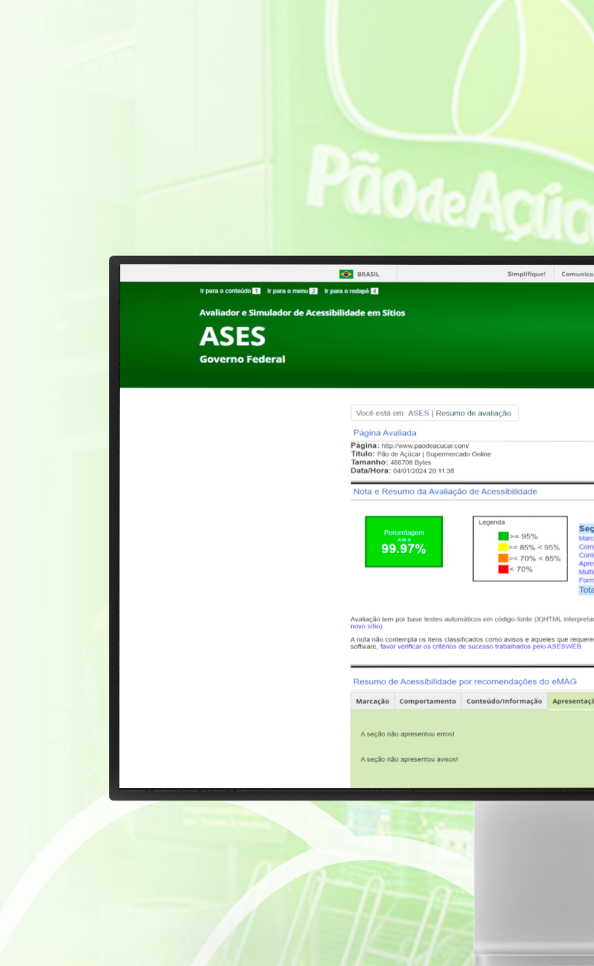CWI has been a fundamental partner for Arezzo, contributing to implementing artificial intelligence in the brand’s e-commerce, optimizing processes and reducing the time needed to update product recommendations. This collaboration allows Arezzo to instantly offer tailored product suggestions to its customers, improving the purchasing journey and boosting sales.
The largest retailer of women’s fashion footwear in Latin America is using artificial intelligence (AI) to improve product recommendations in its e-commerce sites. Previously, using a manual tool, the company faced challenges in creating and maintaining product recommendation rules. Whenever a new collection was launched, professionals needed to update all the rules, registering new information.
This approach required a lot of effort and limited the ability to adapt to customer preferences, requiring frequent adjustments and generating operational difficulties. Sometimes the team created so many specific rules that it became difficult to maintain them, modify them, and understand exactly what was being recommended.
In 2021, Arezzo conducted an internal proof of concept with AWS Personalize, an AI-based product recommendation tool. After the success of POC, the system was transformed into a viable product, initially being implemented in the Arezzo, Schutz and ZZMall brands. Later, product recommendations were expanded to the Anacapri and Vans brands, with the aim of further improving the customer experience. AI has been integrated into brands’ apps, providing personalized product recommendations on mobile devices as well.
Real-time Suggestions
Arezzo can even suggest products even when the user is not logged in, using the device’s interaction history. Furthermore, the company uses customer purchase data in physical stores to personalize product recommendations in e-commerce.
Arezzo recommends products based on customer interaction on the website, their behavior and product characteristics, using a classification tree. They consider the customer’s context, such as promotions, without changing their preferences. When there are performance issues, they perform analysis, A/B and functional tests, and can retrain the AI model or reconsider the type of recommendation.
Additionally, rules external to artificial intelligence are applied, such as the exclusion of products already purchased or out of stock, allowing additional adjustments and customizations in the recommendation process.


Schutz: Tailor-made Catalogs
In 2022, Schutz expanded its catalog to include apparel, previously focused primarily on bags, shoes and accessories. This strategic change was accompanied by significant innovations in its online platform, aiming to offer a more complete and personalized shopping experience to its customers.
The company invested in technology to better understand its customers’ preferences and behaviors. Using artificial intelligence algorithms and data analysis, the company was able to capture and interpret user behavior in real time. Each customer interaction with the website – from viewing a product to completing a purchase – is recorded and analyzed, feeding a robust and dynamic database.
When visiting the website, customers are presented with dynamic product recommendations that adapt as they navigate through the pages. For example, if someone views a leather boot, the system can suggest accessories or clothing items that complement the style of that boot. All with the aim of making the shopping experience more engaging and relevant for the user.
This data-driven and technologically advanced approach has not only strengthened Schutz’s position as a leading brand in the fashion market, but has also significantly improved customer satisfaction and brand loyalty. By integrating digital innovation with a deep understanding of consumer needs, Schutz has established a new standard of excellence in fashion e-commerce, demonstrating a continued commitment to evolving and improving its services.
Algorithms and Techniques

Tangible and Measurable Benefits
To measure results, A/B tests are used, which provide metrics such as conversion rate and revenue generated by recommendation carousels. Monthly analyzes are also carried out on millions of storefronts for each brand, seeking to understand the performance of recommendations and their impact on sales.
This project has the collaboration of several CWI professionals. Among them are data scientists, developers, testers and DevOps. They provide a recommendation solution through an endpoint developed by CWI, which is accessed by the teams responsible for the visual development of the Arezzo website. This approach allows for efficient integration of AI recommendations into the Arezzo website, optimizing the process and reducing the time required to implement and update recommendations.
Challenges of AI-Powered Product Recommendation
Every week, the Arezzo team holds a performance monitoring ceremony, where the results of A/B tests and performance trends are analyzed. At that time, actions are defined to adjust the models, if necessary.

Future Projections


The Value of Partnering with CWI
At CWI, we approach the topic of Artificial Intelligence on two main fronts. At first, as a means to create new solutions or functionalities. Secondly, as a tool to increase productivity and improve the quality of our deliveries.
This culture within software engineering allows AI to be explored in diverse contexts and partners. This is possible due to the constant exchange of knowledge between cwisers and customers. Thus, experiences acquired in a particular project or solution can benefit other partners, even if in different sectors or areas of activity. This expertise in various verticals is an important aspect that contributes to CWI’s competitive advantage as an AI partner.
Technologies used in the project
To achieve the client's desired result in this project, these were some of the technologies used.
-
Amazon Personalize
-
Python
-
Databricks
-
AWS Glue
-
Amazon Kinesis
-
Lambda
-
Amazon S3
-
DynamoDB

















